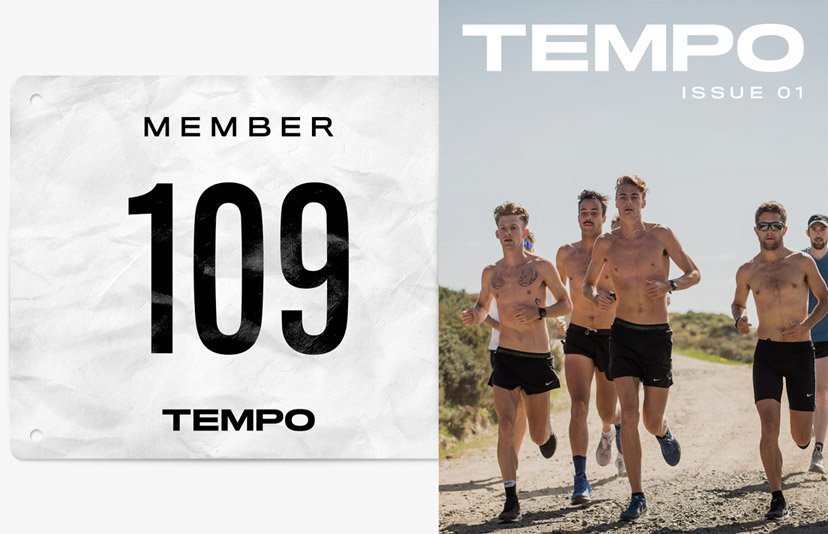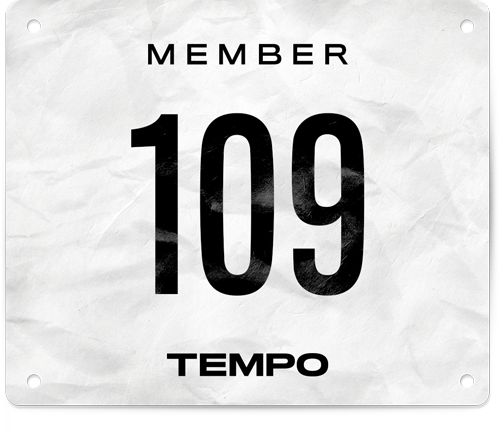Performance
Chasing one Perfect Hour
Mo Farah and Bashir Abdi tackle the hour record
When the global implications of COVID-19 were made clear in early March, the UK’s Mo Farah and Belgium’s Bashir Abdi immediately thought about their families. Abdi had just come off of a stellar performance at the Tokyo Marathon – finishing 2nd in a time of 2:04.51 to break his own national record. He then went to Belgium to spend some time with his family but was planning to return to Ethiopia for a training camp in the spring. Farah was still in Ethiopia, training through an injury and looking to find his next race. Deciding to transition back down to the track from the roads meant that he wanted to sharpen his skills a few times in the leadup to the Olympic Games.
Neither, however, had any plans to line up at the beginning of September in an empty stadium in Belgium to break a world record. But since the end of July, the two have been training in Font-Romeu, France, with the goal of breaking Haile Gebrselassie’s one hour record. On September 4, they will be chasing a distance, rather than a time, at the reimagined AG Memorial Van Damme competition.
Months earlier, in highland Ethiopia, Farah was focused on getting into some races. “At that time I wasn’t thinking anything except finding a race to test myself,” he said. “I was supposed to go leave at the end of March but so many countries were going into lockdown and I left quickly to make sure I didn’t get stuck and could get back to the UK to be with my family.”
With his four children at home due to school closures, Farah embraced the time with his family after his safe arrival. It allowed him to recover from his injury and was a welcome distraction to the Olympic Games being cancelled. He even got some of his competitive juices flowing while being a stay-at-home dad, challenging his kids and his wife to competitions like mini-triathlons, and shooting football penalties in a dizzied state.
Abdi was in Belgium but was so sure of his plans to return to Ethiopia in April, that he left many of his belongings in a house the Mudane team rents outside of Addis Ababa. Instead, he trained in the uncertainty in a much colder and damper Belgium, and was able to care for his wife before she gave birth in June. “Cancelling the Olympics was obviously sad to hear, especially after getting so much motivation from the race in Tokyo,” Abdi said. “But the most important thing is health, and it was nice to get to spend more time with my family. It would have been a difficult period welcoming in a new child and training for the Games.”
To get the record, Farah will have to beat Haile Gebreselassie’s distance of 21,285 meters, which he ran in 2007 at the 46th Golden Spike Grand Prix in Ostrava, Czech Republic. However, Gebreselassie had an important asset on his side, which Farah and Abdi will not: a packed stadium.
Even as they both embraced the circumstances and stayed in shape at home, the itch to compete lingered. Thus, as soon as the idea was presented to chase the record, they were in.
While in cycling, the one hour record is an oft-contested event, in running it is far more rare. Although the event has roots dating back to the mid-1800s, it never garnered comparable popularity, despite legends such as Paavo Nurmi, Emil Zatopek, Jos Hermens, and the current record holder, Haile Gebreselassie, owning impressive titles at various points.
To get the record, Farah will have to beat Gebreselassie’s distance of 21,285 meters, which he ran in 2007 at the 46th Golden Spike Grand Prix in Ostrava, Czech Republic. However, Gebreselassie had an important asset on his side, which Farah and Abdi will not: a packed stadium. Because of the pandemic, the event will be closed off to spectators. In the final meters when they are throwing down the hammer, the arena will remain still and silent.
But little phases Farah at this point in his career, whose accomplishments are too long to list. “I’ve been running since I was 12 and over the years you just learn from races what works for you and what doesn’t work for you,” he said. Obviously this is a different style of running, but he plans to employ similar tactics for this attempt. “It’s really first just about getting fit – once I’m fit enough to run under 60 minutes for a half marathon I can build smaller components from there.”
For fans of the sport, this business-as-usual approach might seem surprising, as his four Olympic Gold medals, among countless other titles, have made him become famous for a particularly punishing finishing kick. This event, by contrast, would seem to require a different approach, focused less on switching gears and more on steady grinding. But what people who train with him know well, like Abdi, is that he’s incredibly skilled at, and doesn’t tire of, running even paces.
“When I knew I could train with Mo [for the world record attempt] I knew it would work well because he is good at this type of training,” Abdi said. “Back in the days I used to hate this kind of training – long runs around the same loop – but Mo is really good at finding a safe place to grind hard, steady, paces for a long, long time.”
Indeed, Farah chimed in, “I once ran a 20-mile tempo around the inside of the track on grass.”
In Font-Romeu, they have been honing these skills, with long training sessions on the track, including long tempo runs, and getting into that sub-60 shape. Now that gyms have re-opened, they can do some fine-tuning to stay strong. And, as is always important, enjoying their training is part of the process.
The grind is grueling but occasional outings to the driving range are a fun distraction. Farah is an avid golfer, and Abdi, and Dutch long distance runner, Mohamed Ali, who has been with the two training for his fall marathon debut, have joined him. The three have been able kick back in the mountainous Font-Romeu in the evenings, watch movies, make Tik Tok videos, and cook traditional Somali food, like spaghetti with bananas – a background they all share.
Some other athletes from around Europe have come and gone, jumping into workouts, or parts of workouts with Farah, often paced by his coach Gary Lough, on the bicycle. It’s a lot of pressure, but he welcomes the opportunity, “I think it’s good for the sport,” Farah said. “With everything going on and so many races cancelled it’s just good to have something for fans to tune in to,” he said.
And despite certain upheavals, his aim remains focused: to run farther in one hour than anyone ever has before.


